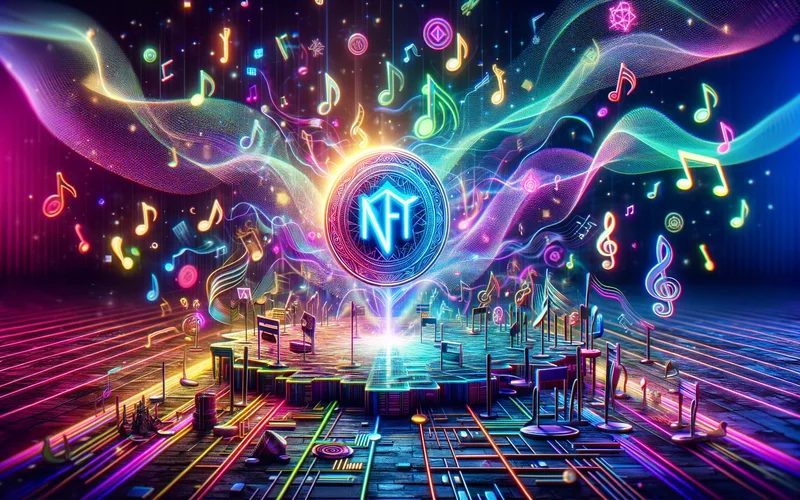NFT generators are a phenomenon that has been democratizing and sparking innovation in the world of digital assets. The globe has been enthralled by non-fungible tokens (NFTs) due to their distinctive blockchain-based ownership representation. However, the focus is now on the tools that are changing the production of these digital wonders. In this investigation, we get deeply into the nuances of NFT generators, comprehending their importance, usefulness, and revolutionary influence on the forefront of digital creation.

Understanding NFT Generators: Pioneering the Digital Renaissance
NFT generators stand as the digital architects of a new era, programmatically breathing life into unique tokens without the need for manual intervention. These tools leverage advanced algorithms and predefined parameters to generate NFTs, marking a departure from the traditional, labor-intensive approach to digital asset creation. Let’s unravel the layers of their significance in the vibrant tapestry of the NFT ecosystem.
The Essence of NFT Generators: Breaking Down Complexity
At its core, an NFT generator simplifies and accelerates the process of creating Non-Fungible Tokens. Here’s a closer look at the key elements that define their essence:
- Automated Tokenization: NFT generators automate the intricate process of tokenization, converting digital assets into unique, blockchain-based tokens through smart contracts.
- Parametric Customization: These tools often come equipped with customizable parameters, allowing creators to infuse uniqueness into each generated NFT. From visual elements to metadata, the level of customization is expansive.
- Mass Production Efficiency: NFT generators empower artists, content creators, and developers to produce a large volume of tokens efficiently. This mass production capability democratizes access to the NFT space.
- Rarity as a Feature: By enabling variability within the generated tokens, NFT generators introduce rarity as a prominent feature. This rarity not only adds value but also enhances the appeal of NFTs to collectors.
The Impact of NFT Generators on Digital Creativity
Mass Production and Efficiency: One of the defining features of NFT generators is their ability to facilitate the mass creation of tokens. This streamlining of the tokenization process liberates creators from the time-consuming task of manual creation. It allows them to focus on the essence of their artistic or digital creations.
Variability and Rarity: Incorporating customizable parameters within NFT generators introduces an exciting dimension of variability. Each generated NFT becomes a unique piece of digital art, with rarity becoming a sought-after feature. This not only enhances the intrinsic value of the tokens but also transforms them into coveted collectibles in the digital realm.
Inclusivity: The democratizing effect of NFT generators is evident in their ability to lower barriers to entry. Artists and creators with varying levels of technical expertise can now easily participate in the creation and tokenization of their work. This inclusivity fosters a diverse and vibrant ecosystem of digital creators.
Consistency and Reliability: Automation brings with it a level of consistency and reliability in the format and standards of the generated NFTs. Adhering to predefined criteria, these tools reduce the likelihood of errors. They contribute to the overall reliability of the NFTs produced.
The Future Landscape: NFT Generators as Catalysts for Change
As we gaze into the future, the role of NFT generators appears poised for expansion and refinement. These tools are not merely streamlining the current processes; they are acting as catalysts for a fundamental shift in how we perceive and engage with digital assets. Here’s a look at potential future developments:
- Advancements in Customization: Expect NFT generators to offer even more sophisticated customization options, allowing creators to express their unique vision with unparalleled detail.
- Integration with Emerging Technologies: The integration of NFT generators with emerging technologies like AI and augmented reality could open new dimensions for digital creativity, pushing the boundaries of what’s possible.
- Broader Applications Beyond Art: NFT generators might find applications beyond the realm of art, extending into areas like virtual real estate, gaming assets, educational content, and more.
- Enhanced Collaboration Tools: Collaborative features within NFT generators could pave the way for joint creative ventures, bringing together diverse talents to produce groundbreaking digital collaborations.
- Sustainability Initiatives: With growing concerns about the environmental impact of blockchain, future NFT generators might emphasize sustainability, exploring eco-friendly approaches to token creation.
Conclusion
In summary, the emergence of NFT generators represents a creative and cultural revolution in addition to a change in technology. By breaking down boundaries, these technologies are allowing a wider range of creators to take part in the digital era. NFT generators serve as navigational tools in this evolving landscape, indicating the way toward an expansive creative future in digital media.
Disclaimer
FAQ
NFTs are unique digital assets stored on blockchains, representing various digital items.
To create a unique NFT, you mint it by uploading a digital file to a blockchain platform.
NFTs can be a good investment for collectors, but research and understanding risks are essential.


